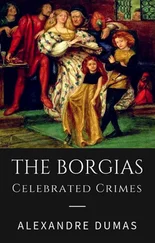His situation seemed hopeless, but the death of Pius III a few days later rescued him from disaster, casting away his former gloom and renewing his hopes for the future. ‘The Duke still occupies quarters in the Castel Sant’Angelo,’ Machiavelli reported on October 27. ‘He is more confident than ever that he can still do great things for he believes that a pope favourable to him will now be elected.’
Throughout this time, Cardinal Giuliano della Rovere had been strengthening his position in Rome. As the bargaining began between the cardinals for the election of the new pope, it was clear that he was the front-runner. His main rival was the Frenchman Georges d’Amboise, whose election was supported by Louis XII; Giuliano’s emphatic protestations that a French pope might well take the papacy back to Avignon brought him much support among the Italian cardinals.
Cesare’s own position weakened considerably when, toward the end of October, news arrived that Forlì, Faenza, Rimini, and Pesaro had fallen to his enemies. On October 29, two days before the conclave was due to open, Cesare and Cardinal Giuliano signed an agreement in the Vatican whereby all the Spanish cardinals agreed to vote for the cardinal on the understanding that, assuming he was elected pope, he would confirm Cesare in his offices of gonfalonier and captain-general and do his utmost to help Cesare establish himself once more in his possession of the duchy in the Romagna.
Machiavelli was astounded when he heard that Cesare had offered his support to Giuliano della Rovere, his father’s old enemy. ‘No one can be unaware of the extreme hate which the Cardinal bears Cesare, since he cannot easily forget the exile in which he had been kept for ten years; the Duke, on the other hand, allows himself to be guided by a blind, unjustified confidence.’
In the end, the conclave was no contest. When it came to the counting of the slips that had been placed in the golden chalice after the first round of voting, it was found that all but three of them bore the name of Giuliano della Rovere. He had acquired the necessary two-thirds majority in one of the shortest conclaves in the history of the papacy, and he chose to be known as Pope Julius II. Francesco Guicciardini commented:
Everyone marvelled greatly that the papacy should have been granted with such widespread agreement to a cardinal who was known to be very difficult by nature and formidable with everyone. He was notoriously restless and had spent his life in continual hardships and had inevitably offended many people, arousing the hatred and provoking the enmity of many great men… He had been a very powerful cardinal for a long time… and his cause was greatly promoted by the immoderate promises which had been made to anyone who might prove useful to him.
— CHAPTER 25 — Cesare at Bay
‘THE DUKE’S CHOICE WAS A MISTAKEN ONE; AND IT WAS THE CAUSE OF HIS ULTIMATE DOWNFALL’
A MONTH SHORT of his sixtieth birthday when elected, Julius II was, unlike his predecessor, unusually vigorous and energetic; still in his prime and enjoying robust health, he was a strong-willed, purposeful, and resolute man, with a very determined view of the world and his position in it.
The grandson of a fisherman from Liguria in northern Italy, he was proud of his humble birth and much given to boasting of his poverty-stricken childhood and of having sailed down the coast with cargoes of onions. His plans to pursue a career in commerce had been dramatically cut short in 1471 when, at the age of twenty-seven, he was made a cardinal by his uncle Sixtus IV.
A tall, rough, impulsive, and handsome man, talkative, arrogant, and restless, he had a fiercely commanding expression and a very short temper. He habitually carried a stick with which he beat men who annoyed or provoked him, and he would hurl anything at hand, including his spectacles, at messengers who brought him unwelcome news. He had had many mistresses in the past, from one of whom he had contracted syphilis, and as a cardinal he had fathered three daughters. But he had thereafter shown no interest in women, concentrating his sensual appetites on food and drink, which he enjoyed to the full. He relished game and suckling pig and the strong wines of Greece and Corsica; and during Lent, like many others who could afford to do so, he made do with large dishes of lampreys, prawns, caviar, and tunny fish. He paid no attention to his doctors’ words of caution, and when ill, treated his indisposition by chewing quantities of strawberries and plums, which he believed had curative properties.
He was no scholar, he used to say with defensive pride; he was more suited to the life of a soldier. Indeed, he sometimes said that he ought to have been a soldier; and certainly when he personally led his armies out of Rome to compel the obedience of rebel cities in the Papal States and to recover lost territories for the church, he displayed a taste for hard campaigning that dismayed the less robust cardinals whom he obliged to accompany him. It was Julius II who, unwilling to rely upon capricious and often irresolute mercenaries, decided to form a professional papal army; and this decision led in 1506 to the creation of the Swiss Guards, who remained a fighting force until 1825, when they became a smaller domestic bodyguard, though still retaining their old uniform of slashed doublets, striped hose, and rakish berets, as well as their pikes and halberds.
When a sculptor asked him what should be placed in the hand of a statue of him, he replied, ‘Put a sword in my hand, not a book.’ As a soldier he wore full armour, with a tiara taking the place of a helmet. One contemporary likened him to a ship guided neither by compass nor by charts. ‘No one has any influence over him, and he consults few or none,’ the Venetian ambassador wrote; ‘anything that he has been thinking about during the day has to be carried out immediately,’ the envoy added. ‘Everything about him is on a magnificent scale, both his undertakings and his passions.’
One of his overpowering passions was a deep hatred of the Borgia family. As a cardinal, and fearing assassination, he had fled to France, where he had encouraged Charles VIII to invade Italy and had accompanied him on his campaign. He had failed in his attempt to have a council appointed to depose the pope for simony; but, deprived of the satisfaction of dethroning Alexander VI, ‘that Spaniard of accursed memory,’ he determined to pursue Alexander’s son to the death, to reestablish the church’s rule in the Papal States, and to restore the temporal power of the papacy, which he knew to be essential to his authority.
As Machiavelli wrote, Julius II’s hatred of Cesare ‘was notorious; and it is not to be supposed that the Pope will so quickly have forgotten the ten years of exile which he had had to endure under Alexander VI.’ In a conversation with Giustinian, the new pope said, ‘We do not want [the duke] to be under the illusion that we will favour him, nor that he shall have even one rampart in the Romagna, and although we have promised him something, we intend that our promise shall only extend to the security of his life and of the money and goods that he has stolen.’ For the moment, however, he was prepared to give the impression that the past enmity, which had characterized the relationship between himself and ‘that detested family,’ was now to be modified.
The new pope, having at last achieved the position for which he had yearned for so long, seemed disposed to abide by the undertakings he had given Cesare before the conclave. The Florentines were told to grant the duke and his troops free passage through their territory to the Romagna; while so long as Cesare stayed in Rome, he was free to leave the dark rooms in Castel Sant’Angelo and to occupy apartments in the Vatican. Julius II also promised to confirm Cesare in his appointment as captain-general, and, initially at least, he continued to show respect for Cesare, going so far as to refer to him as ‘our beloved son’ in a brief to Faenza written within days of his election.
Читать дальше











